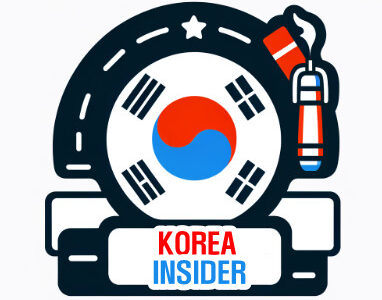Changes Coming to the KIIP: Transition to a Paid Program
Beginning in January 2025, the Korean Immigration and Integration Program (KIIP) will implement a fee-based structure for its educational services, which have traditionally been offered free of charge. This shift aims to enhance learning opportunities for immigrants in mastering the Korean language and understanding the culture, ultimately fostering their adaptation and self-sufficiency within South Korean society.
While the program has provided invaluable resources since its inception, there has been a noticeable decline in motivation among some participants, alongside an increasing demand for services. These factors have compelled the authorities to introduce a cost-sharing model designed to balance the program’s sustainability.
What is the KIIP?
The KIIP is an educational initiative launched in 2009, designed specifically to assist newly arrived immigrants in navigating the complexities of Korean language and culture. Funded by the Ministry of Justice, the program serves as a structured pathway for immigrants to improve their language skills and gain essential knowledge about Korean laws and societal norms.
Why Introduce Fees?
The decision to implement fees stems from a range of challenges identified during the program’s free provision. For instance, the lack of engagement from certain participants has correlated with lower educational outcomes. Simultaneously, the growing demand for Korean education has outstripped available government resources, rendering it difficult to adequately meet the needs of prospective learners.
Education experts posit that introducing a financial commitment could enhance participant engagement, ultimately benefitting their learning experience.
Details of the Paid Program
The upcoming fee structure will not be uniform for all participants. Instead, costs will be tiered according to the courses undertaken. Each stage of 100 hours of instruction will require a payment of 100,000 KRW, which constitutes about 20% of the actual course costs, translating to approximately 1,000 KRW per hour.
For individuals contributing positively to national interests or those in precarious social positions, fee waivers will be available. Moreover, dedicated participants demonstrating committed attendance will qualify for a 50% discount.
Who is Eligible for Fee Waivers or Reductions?
The Ministry of Justice is actively ensuring that the new fee structure considers the financial challenges faced by many immigrants. For example, those who have made significant contributions to society or are classified as socially vulnerable may receive full tuition waivers. Additionally, if an individual maintains 100% attendance throughout a stage, they will benefit from reduced fees.
Anticipated Benefits of this Change
This transition to a paid program is expected to cultivate a more serious approach to education amongst participants, leading to improved academic achievements. Furthermore, the new model will address government funding challenges while simultaneously expanding course offerings, ultimately creating a more balanced educational framework.
Comprehensive Overview of the KIIP
Legal Foundation:
Per Article 39 of the Immigration Control Act, the Minister of Justice is empowered to implement social integration programs. These programs aim to support social adaptation for foreign nationals seeking South Korean citizenship or permanent residency, encompassing education, counseling, and information provision.
Eligibility and Operating Institutions:
-
Eligible Participants: All legally residing foreigners registered in South Korea, as well as naturalized citizens within three years of acquiring citizenship, are eligible for the KIIP.
-
Institutions: Educational sessions are facilitated by universities, local governments, public organizations, family centers, and NGOs designated by the Minister of Justice. There are currently 335 institutions nationwide as of August 2024.
Curriculum Overview:
The program encompasses a comprehensive 415-hour course focused on the Korean language and culture, alongside a specialized 100-hour course that delves into understanding Korean society.
Fee Structure:
- Levels 1 through 4 would incur a fee of 100,000 KRW for 100 hours of instruction.
- For Level 5, participants will be required to pay 70,000 KRW for the basic course (70 hours) and 30,000 KRW for the advanced course (30 hours).
- Importantly, Level 0 (15 hours) and specific groups exempt from fees will remain without charge. Eligible individuals for discounts will pay only 50% of the tuition fees.
Exemptions and Reductions:
-
Exemptions: Certain individuals, including independence activists and their families, veterans and their families, recipients of basic livelihood security, severely disabled individuals, and some minors under varying circumstances, are exempt from fees.
-
Reductions: Individuals achieving 100% attendance during a given stage, as well as those recommended for their exemplary learning attitudes, may be eligible for reduced fees.
This update reflects the current state of affairs and will evolve as government policies progress. It is intended for informational purposes and does not offer legal interpretations or judgments. For personalized advice or consultation, please feel free to visit our 1:1 Consultation Board.
In conclusion, as someone who has observed the transformations in the KIIP over the years, I recognize the potential benefits of this transition. The program not only helps immigrants gain foundational skills but also promotes a sense of responsibility and commitment towards their educational journey. I believe that, with these changes, the KIIP will continue to play a vital role in fostering integration and supporting the success of immigrants throughout Korea.
